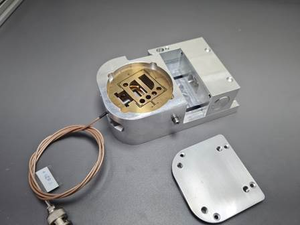Soon made-in-India tunable lasers to lower costs of quantum optics labs
By IANS | Updated: July 19, 2024 18:45 IST2024-07-19T18:43:59+5:302024-07-19T18:45:12+5:30
New Delhi, July 19 India is soon set to have its own multi-channel tunable laser system technology platforms ...

Soon made-in-India tunable lasers to lower costs of quantum optics labs
New Delhi, July 19 India is soon set to have its own multi-channel tunable laser system technology platforms which will help in the sectors of medicine, remote sensing, geo-mapping, and space, the Ministry of Science & Technology said on Friday.
This comes as India gets ready to take a "quantum" leap through its Rs 6,000 crore National Quantum Mission (NQM), launched in 2023 by the Department of Science & Technology (DST), under the Ministry.
The new laser system will be manufactured by a spinoff company from Raman Research Institute (RRI), an autonomous institute of DST.
"The indigenous platforms could lower costs of quantum optics labs and be used for medicine, remote sensing, geo-mapping, and space," the ministry said.
The RRI recently awarded the licence to its first spin-off company nexAtom Research and Instruments, which is expected to soon commence production of the multi-channel system. The tunable lasers which are called the External Cavity Diode Lasers (ECDL), are very precise spectroscopic tools meant for addressing quantum systems in research and technology labs. Such tunable laser systems will be useful for developing solutions across quantum communication, quantum technology, quantum systems, and metrology -- all of which are the core themes of the DST-led NQM.
"
nexAtom laser systems will also eliminate the "need for buying auxiliary systems and instruments, which add to the overall costs", he added, noting that the systems can be bought as an entire integrated package or a sub-system, which makes it highly cost-effective.
Further, RRI and nexAtom also wish to create a template for others in academia working in the quantum domain towards entrepreneurship in India, said Professor Sadiq Rangwala, professor at the Light and Matter group at the RRI.
Disclaimer: This post has been auto-published from an agency feed without any modifications to the text and has not been reviewed by an editor
Open in app